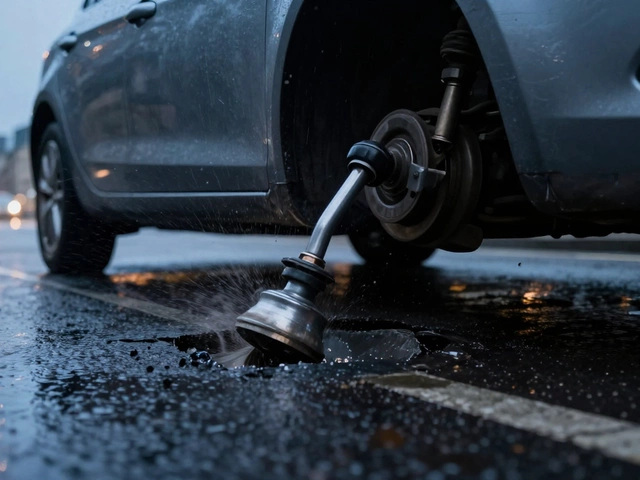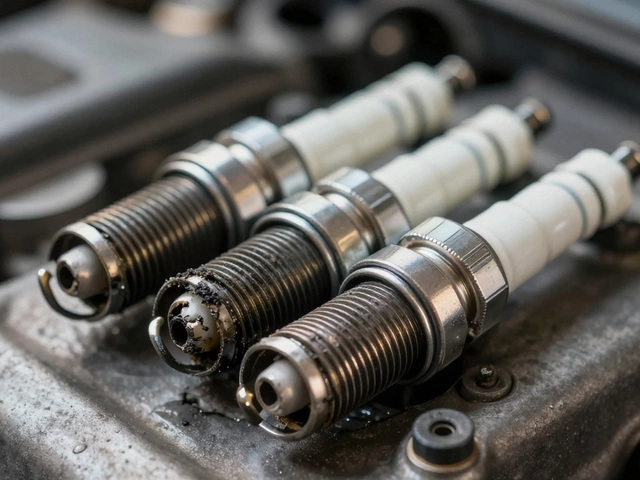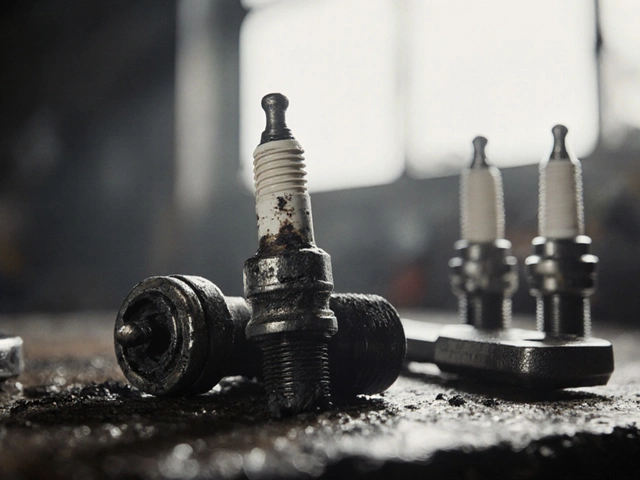Engine oil isn't just some goop you pour into your car and forget about. It's the unsung hero of your ride, keeping all those metal bits from grinding into oblivion. Wanna talk about friction? That’s one problem engine oil tackles head-on, minimizing wear by ensuring metal doesn't scrape metal. Without this slippery savior, your engine would screech to a hot halt faster than you can say 'repair bill.'
But hold up, engine oil doesn't stop at just lubrication. It pulls double duty by helping with engine cooling too. Sure, you might think that’s the radiator’s job, but oil contributes by carrying heat away from critical components. If that heat sticks around, you can bet your engine’s lifespan will tank.
- The Basics of Engine Oil
- Why Lubrication Matters
- Cooling: More Than Just Antifreeze
- Fighting Wear and Tear
- Choosing the Right Oil for Your Car
- Keeping Up with Oil Changes
The Basics of Engine Oil
Alright, let’s get down to brass tacks about engine oil. This stuff isn't just about keeping your car’s engine in a zen state—it's all about science. Engine oil plays the critical role of reducing friction and keeping those moving parts happy. Let’s be real, nobody wants to deal with a grumpy engine.
At its core, engine oil is a mix of base oils and additives. Base oils can be mineral, synthetic, or a blend of both. Imagine these as the cake of oil; additives are the frosting. They include detergents, antioxidants, and rust inhibitors. But how do all these manage to keep your engine purring?
"Engine oil is the lifeblood of a vehicle's engine," says Chris Fix, a popular car maintenance YouTuber. "It can mean the difference between driving it for miles or dealing with major repairs."
You've got these essential properties of engine oil like viscosity index, which is basically how the oil flows at different temperatures. Too thick or too thin oil can mess with engine performance. There's also the Total Base Number (TBN), which shows how well the oil can neutralize acids. Acids are the silent creepers that can corrode engine parts over time.
| Oil Type | Viscosity Index | TBN |
|---|---|---|
| Mineral | 95-100 | 7-8 |
| Synthetic | 120-130 | 10-12 |
Choosing the right oil isn't just following a recipe. It requires knowing your car’s requirements. Checking the owner's manual is always a smart start. If your car's engine is older, a high mileage oil might be your best buddy; these are specially blended to tackle the challenges of older engines, like leaks and oil consumption.
Understanding what’s under the hood gives you that confidence boost. It might not be as exciting as a road trip playlist, but hey, it'll keep you on the road longer!
Why Lubrication Matters
So, you might be wondering, why's everyone so obsessed with engine oil? Well, it all boils down to keeping your engine's parts from turning into a hot, smoking mess. But let's break it down a bit more.
Inside any engine, you've got these metal parts sliding and gliding, like a crowded dance floor at rush hour. Without proper lubrication, all that metal-on-metal action is gonna lead to some serious wear and tear. This is where engine oil steps in to play referee. It forms a thin, slippery barrier between components, which drastically cuts down on friction and heat. Basically, it lets the engine’s parts move smoothly, avoiding those ugly metal-on-metal collisions.
But here's another cool thing: motor oil doesn't just stop at greasing the gears. It also acts like a magnet for grime. As oil circulates, it picks up all those nasty little particles like metal shavings and dirt, stopping them from messing with your engine's smooth operations. That's efficiency at its finest folks!
And just like everyone appreciates a fresh clean-up every now and then, so does your oil. Changing your oil means getting rid of all those contaminants and starting anew with fresh protection. It's like hitting the refresh button on your computer. Lose the sludge, keep the lube.
- Reduces Friction: Smooth metal interactions keep engines from wearing out.
- Heat Reduction: Less friction means less heat—a win for your engine's health.
- Contaminant Removal: Oil traps and carries away particles, keeping the engine clean.
If you skimp on oil changes, you’re basically letting all these benefits slide. And trust me, no one wants to pay for engine repairs that could've been avoided with routine maintenance. So, next time you’re tempted to postpone that oil change, give a thought to your engine—your wallet will thank you later.
Cooling: More Than Just Antifreeze
Yeah, we all know about antifreeze. It's the hero your radiator counts on. But surprise! Engine oil is like the superhero sidekick in your vehicle’s cooling system. Aside from just making things slippery, your oil actually helps in carrying heat away from the engine’s hot zones.
Think of it this way: as your engine runs, metal parts churn, race, and rub against each other, producing loads of heat. If that heat builds up without a way out, your engine could be in some serious trouble. That's where our unsung hero steps in. Engine oil doesn't just hang out in one place. It circulates and cools, moving heat away from the engine’s hottest spots and dumping it into the oil pan where it can be safely dissipated.
According to Car Expert Monthly, "Proper cooling enhances performance and prolongs engine life, whereas insufficient cooling is the road to a costly breakdown."
“A well-maintained cooling system, supported by the right engine oil, is crucial for optimal vehicle performance,” says Samantha Roberts, a well-respected automotive journalist.
How effective is engine oil at keeping things cool, you ask? Well, though figures can vary, engine oil provides about 40% of the engine's cooling needs. That’s nothing to sneeze at![1]
Choosing the right oil helps, too. Synthetic oils, for example, often deal with heat better and last longer than their conventional counterparts. If your engine’s got a turbocharger or you live in scorching summer climates, synthetic might be the way to go.
| Oil Type | Cooling Efficiency |
|---|---|
| Conventional Oil | Normal |
| Synthetic Oil | High |
Pondering oil change intervals? Don’t ignore what the manufacturer suggests. Sticking to regular changes keeps your engine’s cooling system in tip-top shape. It’s a simple habit but can save you big time in the long run.

Fighting Wear and Tear
Alright, so let’s dive into how engine oil does some serious heavy lifting to keep your engine from tearing itself apart. This stuff is like a buffer between all those metal parts, reducing friction and preventing them from wearing down over time. Without it, you’d be looking at some major damage and expensive repairs.
So, what’s the deal with wear and tear? Well, all the moving parts in your engine - pistons, crankshaft, camshaft - they’re all moving at high speeds. The engine oil coats these parts, ensuring they glide smoothly past each other without causing too much friction. It’s like having a personal masseuse for your engine, keeping everything relaxed and moving smoothly.
Also, engine oil contains special additives called detergents. These guys are like little cleaners in your engine, removing sludge and deposits that can clog things up. Nobody wants a gunky engine, right?
Ever heard of corrosion? It’s something that happens when engine parts get all chummy with moisture and oxygen. But don’t worry, good ol’ engine oil has antioxidants that fend off rust and corrosion, keeping parts nice and clean.
- Regular oil changes are a must to keep your engine protected. Old oil won't cut it, as it loses its protective qualities and can increase wear.
- Pay attention to your car’s make and model to choose oil with the appropriate viscosity and additives for that extra protection layer.
- Consider using high-mileage oils if your car is older, as they have enhanced formulations to tackle the wear of an experienced engine.
Looking at some numbers? According to some auto experts, regular oil changes can extend an engine’s life by up to 200,000 miles, assuming it’s part of a well-rounded maintenance routine. That’s quite a bit of extra road time!
So, keep that engine oil fresh and your engine well-oiled to fight off wear and tear like a champ.
Choosing the Right Oil for Your Car
Ever stood in the auto aisle and felt lost staring at the sea of oil bottles? Picking the right engine oil isn't a one-size-fits-all situation; what works for one car might not be the best for another. First off, crack open your car's manual—it’s like the holy grail of maintenance tips tailored just for your vehicle. Look for the recommended oil viscosity, often written as a number like 5W-30. This indicates how the oil flows in cold and hot temperatures.
Now, here's where things get personal. High-mileage oils might be your best bet if your car's clocked over 75,000 miles. These oils help protect aging engines by reducing leaks and oil burn-off. If you've got a fancy modern car, synthetic oils are often recommended. They're designed for high-performance engines and extreme temperatures, plus they last longer between oil changes.
But hold on, what's the drama with regular vs. synthetic oil? Regular oil is like the plain vanilla of the oil world—good for basic engines and typical driving conditions. Synthetic oil, on the other hand, gets artificially jazzed up for better performance. It offers enhanced lubrication and can improve fuel efficiency—making it a go-to for long highway drives and sporty rides.
Confused about brands? It’s tempting to go with the cheapest option, but quality varies widely. Premium brands often add detergents and dispersants that keep your engine clean and running smooth. Investing in a trusted oil brand can prevent costly repairs down the road.
Here's a quick tip: When in doubt, reach out to your mechanic. They've seen it all and know which oils perform reliably. Also, always keep an eye on the oil life monitor, if your car has one. It’ll let you know when an oil change is overdue.
Ultimately, picking the right oil boils down to your car's needs and your driving habits. Keep those in mind, and selecting the perfect oil will be a breeze!
Keeping Up with Oil Changes
So, you’ve got your car running smooth, but ignoring oil changes is a quick ticket to engine trouble. Regularly swapping out the old oil with fresh stuff is like giving your car a spa day. It clears out all the dirt, metal particles, and gunk that can clog up the works.
Generally speaking, it’s smart to change your engine oil every 3,000 to 5,000 miles, but always check your owner's manual since every car’s got its own personality. Some synthetic oils might let you stretch that a bit longer. But don't push it; delaying an oil change risks increased wear, especially if you're doing a lot of stop-and-go driving or hauling heavy loads.
And hey, keeping up with these changes doesn’t just prevent wear; it can boost your car’s efficiency, saving you cash at the pump. A well-lubricated engine burns fuel more efficiently, which means fewer visits to the gas station.
Here’s a quick routine to follow for oil change day:
- Warm up your car for about five minutes. This helps the oil flow out smoothly.
- Turn off the engine and make sure you’re parked on a flat surface.
- Grab your tool kit and an oil pan to catch the old oil.
- Unscrew the oil drain plug and let the old oil spill into the pan. Careful, it’s hot!
- Change out the oil filter. It’s as important as changing the oil itself.
- Replace the drain plug, and pour in the new oil using the grade specified for your car.
And boom, you’re done! Your engine’s happy, and you’ve just sidestepped some potential headaches. If you’re intrigued by the tech side, some newer cars have oil change indicators that’ll tap you on the shoulder when it’s time. Modern love, right?






